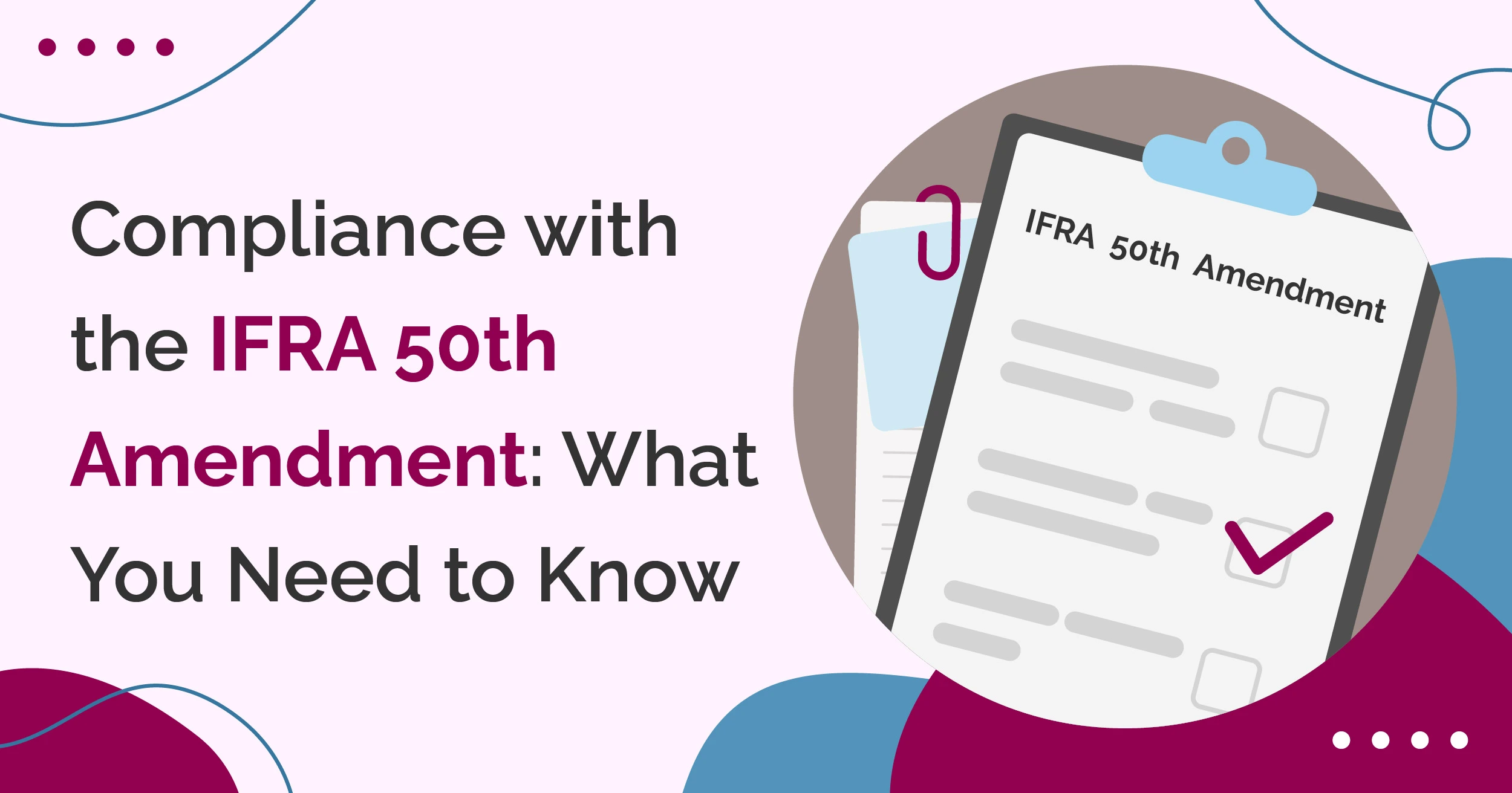Understanding the IFRA Standards
IFRA Standards impact the formulation of perfumes, colognes, and other scented products. They serve as a comprehensive blueprint, guiding perfumers and product developers in selecting and using fragrance ingredients that meet stringent safety and quality criteria. These standards dictate the maximum allowable concentrations of specific fragrance ingredients, ensuring they do not pose health risks to consumers. Perfumers must carefully adhere to these guidelines during the formulation process, striking a delicate balance between creativity and compliance. This meticulous approach guarantees that the scented products we adore smell delightful and are safe to wear or use, meeting the highest industry standards for consumer protection.
The significance of IFRA Amendments
Amendments to the IFRA Standards are imperative to maintaining the highest levels of safety and quality in the fragrance industry. They are essential because our understanding of fragrance safety constantly evolves through ongoing scientific research. Discoveries, advancements in technology, and a deeper comprehension of the effects of fragrance ingredients on human health necessitate adjustments to these standards. Even seemingly minor amendments can substantially ripple effect within the fragrance industry. They prompt perfumers and manufacturers to reformulate their products, adapt to changing ingredient restrictions, and invest in research and development to create safer and more innovative fragrances. These amendments reinforce the industry’s commitment to consumer safety, ensure compliance with evolving regulations, and spur innovation, driving the continuous improvement of fragrances and their formulations.
Need help staying compliant with IFRA Standards?
Introducing the IFRA 50th Amendment
The IFRA 50th Amendment, notified on the 30th of June 2021, represents a limited alteration within the broader spectrum of IFRA Standards. While not a sweeping transformation, it brought about a precise modification prohibiting the use of one substance, Mintlactone, as a fragrance ingredient. Although focused in scope, this particular amendment carries significance due to its impact on the formulation and production of fragrances. It highlights the industry’s commitment to meticulous scrutiny and adjustment of standards, even when the changes may appear subtle, in the pursuit of fragrance safety and compliance with evolving scientific knowledge and regulatory requirements.
The scope of the IFRA 50th Amendment
On June 30, 2021, the fragrance industry marked an important date as the International Fragrance Association (IFRA) announced the 50th Amendment to its Standards. This amendment came into effect on August 30, 2021, for new fragrance creations and on July 30, 2022, for existing ones.
The IFRA 50th Amendment may appear modest, but it carries implications. It includes three key components:
- Prohibition of Mintlactone: One of the notable changes is the prohibition of Mintlactone (CAS 13341-72-5) as a fragrance ingredient. This decision was based on the careful evaluation by IFRA’s Expert Panel for Fragrance Safety Rationale, which concluded that Mintlactone poses safety concerns.
- Standard Operating Procedure (SOP): The amendment introduced a new Standard Operating Procedure for implementing changes like these. This procedure ensures a systematic approach to incorporating amendments into fragrance formulations.
- Updated Index list: The Index list, which serves as a reference for fragrance ingredients, has been updated to reflect the changes brought about by the 50th Amendment.
It is worth noting that this new amendment is an addition to previous changes in the IFRA Code of Practice. Consequently, all aspects of the 49th Amendment addressing other fragrance materials remain unchanged and in effect.
Including Mintlactone as a prohibited ingredient highlights the industry’s ongoing commitment to enhancing fragrance safety. These changes, though subtle in appearance, underscore the industry’s dedication to keeping consumers safe and ensuring that fragrances continue to meet the highest standards of quality and compliance.
Safety and consumer protection
These minor adjustments are a testament to the industry’s unwavering commitment to meticulously reviewing and enhancing standards to guarantee the well-being of consumers. Thus, every subtle change, such as the 50th Amendment, contributes significantly to the overarching mission of fragrance safety, ensuring that the scented products we cherish can be enjoyed confidently.
Industry response to the IFRA 50th Amendment
The fragrance industry responded swiftly and diligently to introducing the 50th Amendment to the IFRA Standards. Perfumers and manufacturers, known for their adaptability, embraced the changes with a commitment to compliance and consumer safety. Challenges emerged as they had to reformulate existing fragrances and navigate the intricacies of the new standard. This meant adjusting ingredient combinations and concentrations while maintaining the essence and quality of their scents. The industry’s collective response underscored its dedication to adhering to the highest standards and delivering fragrances that meet safety regulations and consumer expectations. This proactive approach demonstrated resilience and highlighted the industry’s unwavering commitment to providing safe, innovative, and delightful fragrances to the market.
Compliance and certification
With the introduction of the 50th Amendment, companies were prompted to review and adjust their formulations to align with the new standard. This involved comprehensive testing to verify their products complied with the new standard. The certification process involves thorough documentation, ingredient analysis, and quality control measures. By embracing these stringent processes, companies demonstrate their dedication to producing fragrances that meet the highest safety standards and remain compliant with the IFRA Standards, thus fostering consumer trust and industry integrity.
Conclusion
In summary, the IFRA 50th Amendment, though seemingly modest, represents a significant milestone in the fragrance industry’s ongoing commitment to consumer safety and quality. It introduced precise changes, including the prohibition of Mintlactone, to enhance the safety of fragrances. This amendment highlights the industry’s responsiveness to evolving scientific knowledge and regulatory requirements. It is a reminder that even minor amendments play a vital role in upholding the integrity and safety of the fragrances we use daily. The world of fragrances is ever-evolving, and staying informed is key to success in this dynamic field.
Need help staying compliant with IFRA Standards?

